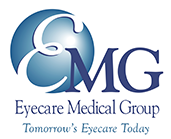
January is recognized as Glaucoma Awareness Month by the American Academy of Ophthalmology. But being aware of glaucoma is something you should do all year long, especially if you’re in a high-risk category.
Several things can make you high risk. The biggest factor? Your age.
Glaucoma is one of the leading causes of blindness in the United States, especially in adults older than 60. If you’re at risk, you should be aware of the steps you need to take to protect your vision.
Know Your Risk
Age is probably the most significant factor in glaucoma risk, but you don’t need to be as old as 60 to be at increased risk. Being 40 or older puts you in a higher risk category than adults who are younger than 40.
But glaucoma can affect anyone at any time, although it’s rare in younger adults without any pre-existing conditions. Other factors that put you at high risk include:
- Being of African, Hispanic, Asian, Irish, or Scandanavian descent
- Having a family history of glaucoma
- Having a high refractive error, whether nearsighted or farsighted
- Taking corticosteroids over a long period
- Having diabetes
- Having hypertension
- Having elevated cholesterol and heart disease
- Having previous eye trauma
If you are over 40 and exhibit any of these other risk factors, you should have regular eye exams. You should have these at least once every two years, if not annually.
Talk to your eye doctor about just how often you should have eye exams based on your medical history. Diagnosing glaucoma in the early stages of the disease can potentially prevent you from going blind.
Glaucoma Complications
Glaucoma refers to any disease that causes damage to the optic nerve. The optic nerve sends signals to your brain in the form of images that you can comprehend.
When the optic nerve becomes significantly damaged, your visual field will begin to shrink, often causing a tunneling effect. At that point, you can’t do anything to restore your vision.
But glaucoma doesn’t present any symptoms in the early stages. It’s usually caused by increased ocular pressure due to a build-up of fluids in the eye.
You won’t notice if your ocular pressure is high, though, which is why it needs to be measured by an eye care professional. If your eye pressure is high, advanced imaging can detect any damage to the optic nerve.
This allows them to diagnose glaucoma before you’ve lost any vision. In some cases, they can prevent glaucoma or delay the disease for a significant length of time.
Prevention and Treatment
Suppose your eye doctor finds your eye pressure is high, but there’s no damage to the optic nerve. In that case, you can avoid any damage by lowering your ocular pressure.
This can be done with medication, usually in the form of eye drops, or by having surgery. These treatments can also slow the progress of glaucoma and prevent any further damage to the optic nerve.
While there is no cure for glaucoma, it can be effectively managed, especially when spotted early. This is why awareness is so important.
Knowing your risk and having regular eye exams ensures that signs of glaucoma will be detected before irreversible damage occurs. Treatment can delay vision loss and prevent blindness for years. You need to be able to get treatment before it’s too late.
Concerned about your eyes? Schedule an appointment at Eyecare Medical Group in Portland, ME, today!





